PsychNewsDaily Publishers
100 Summit Drive
Burlington, MA, 01803
Telephone: (320) 349-2484
PsychNewsDaily Publishers
100 Summit Drive
Burlington, MA, 01803
Telephone: (320) 349-2484
Research shows women often outperform men in video gaming IQ tests, with Android users generally achieving higher scores than iPhone users across diverse gaming platforms.
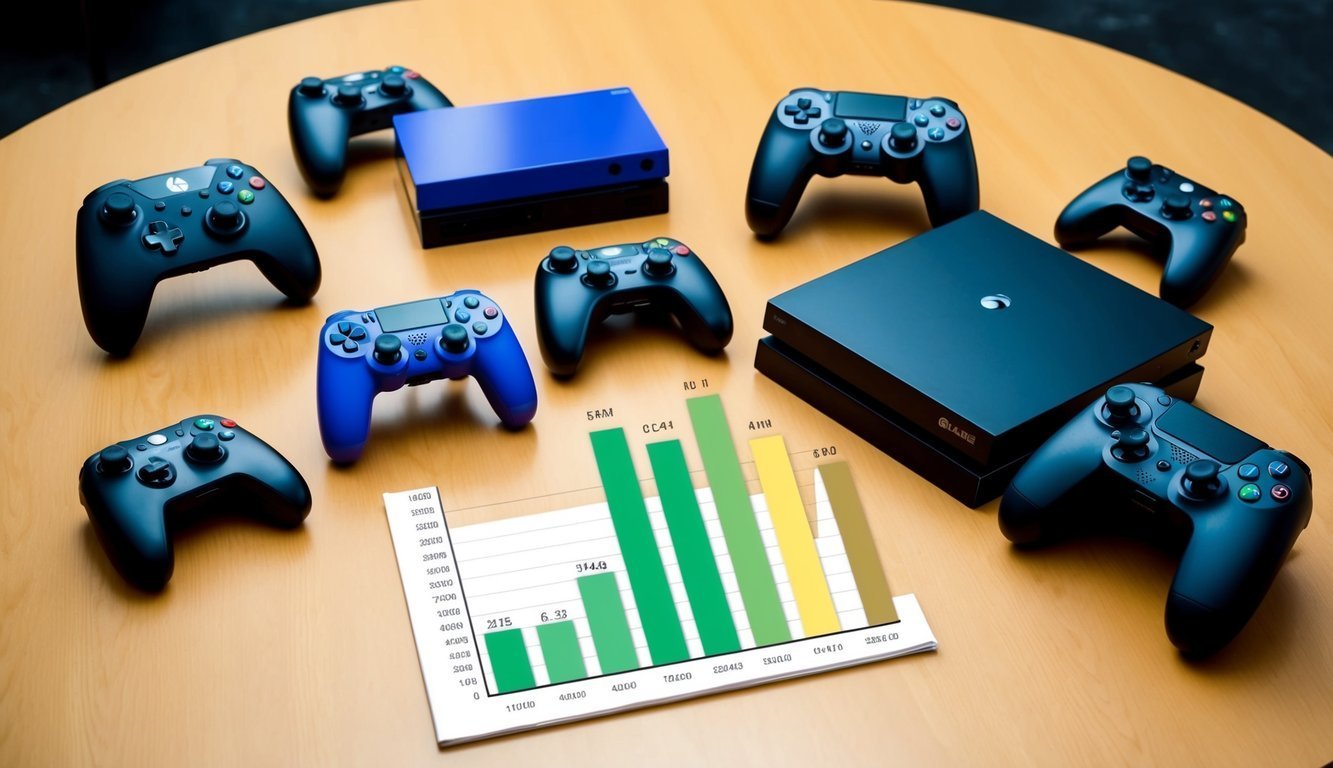
The study focused on the IQ scores of video gamers, exploring gender differences in performance. Researchers aimed to analyze how these factors relate to gaming habits on different platforms.
In this research, video gamers were tested to measure their IQ scores. The results showed interesting trends.
Key Findings:
The study collected data from a diverse group of participants. They assessed various cognitive abilities linked to video gaming.
Participants engaged in different types of games, which helped provide a clear picture of how gaming impacts IQ scores.
Gender Differences:
The study highlighted notable differences in how men and women approached gaming. Women demonstrated higher problem-solving skills, influencing their IQ scores positively.
This research adds to the growing understanding of how gaming can affect cognitive abilities. It opens up new conversations about inclusivity and performance in gaming.
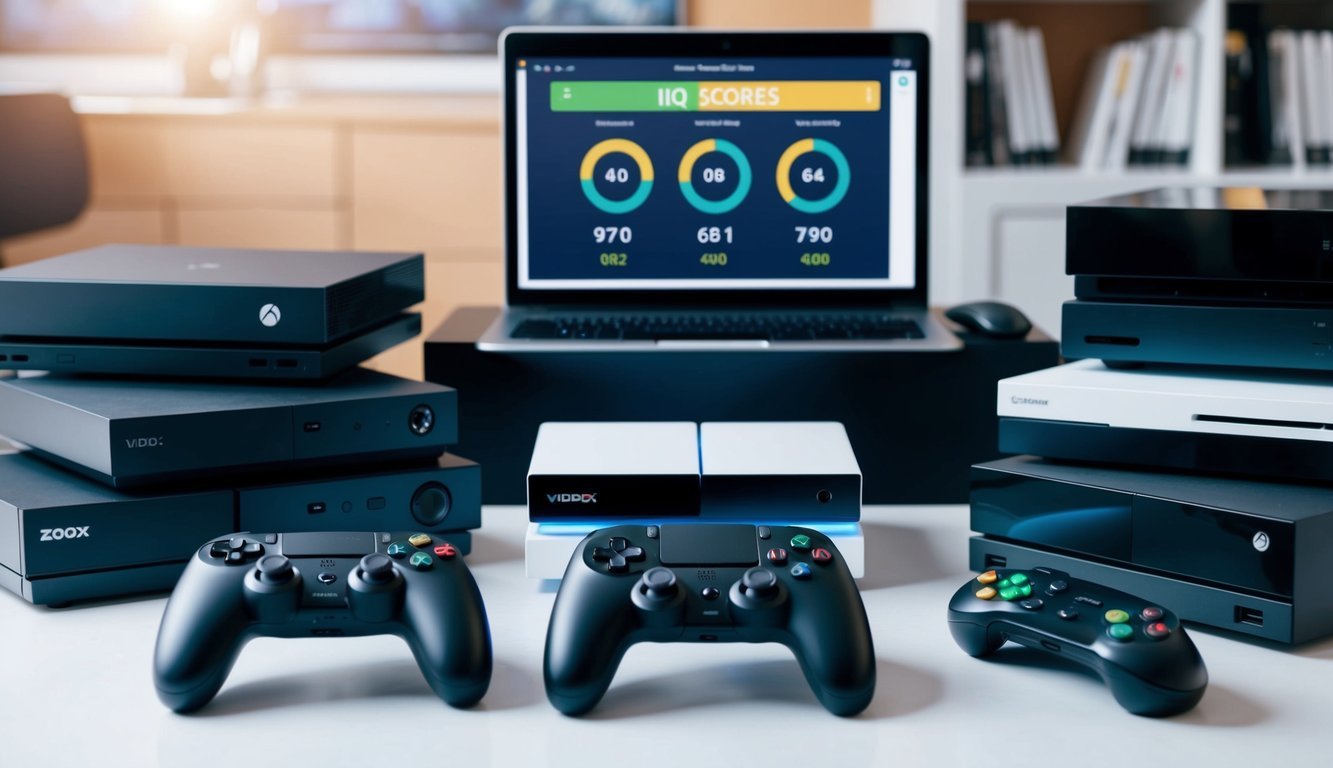
Research has shown interesting differences in the IQ scores of male and female gamers. These findings shed light on how gender may influence performance in gaming contexts and help understand broader implications for both groups.
Studies indicate that women may outscore men in certain video gaming contexts. Researchers have found that female gamers often perform better on tasks requiring problem-solving and critical thinking skills.
Interestingly, this trend can be attributed to various factors, including gaming experience and the types of games played. Female gamers have been found to excel in strategic and puzzle-based games.
For instance, in some studies, women scored higher than men in IQ tests tailored to gaming scenarios. These differences highlight how gender may impact cognitive abilities in gaming environments.
The findings about gender performance in gaming raise intriguing psychological questions. The higher IQ scores for women in gaming contexts may challenge stereotypes about gender and gaming skills.
Moreover, this could influence how games are marketed and developed. Game designers may consider creating more inclusive environments that cater to both genders.
Understanding these dynamics can encourage more women to participate in gaming. As the industry diversifies, it may help to break down barriers and promote a more balanced representation of genders in gaming.
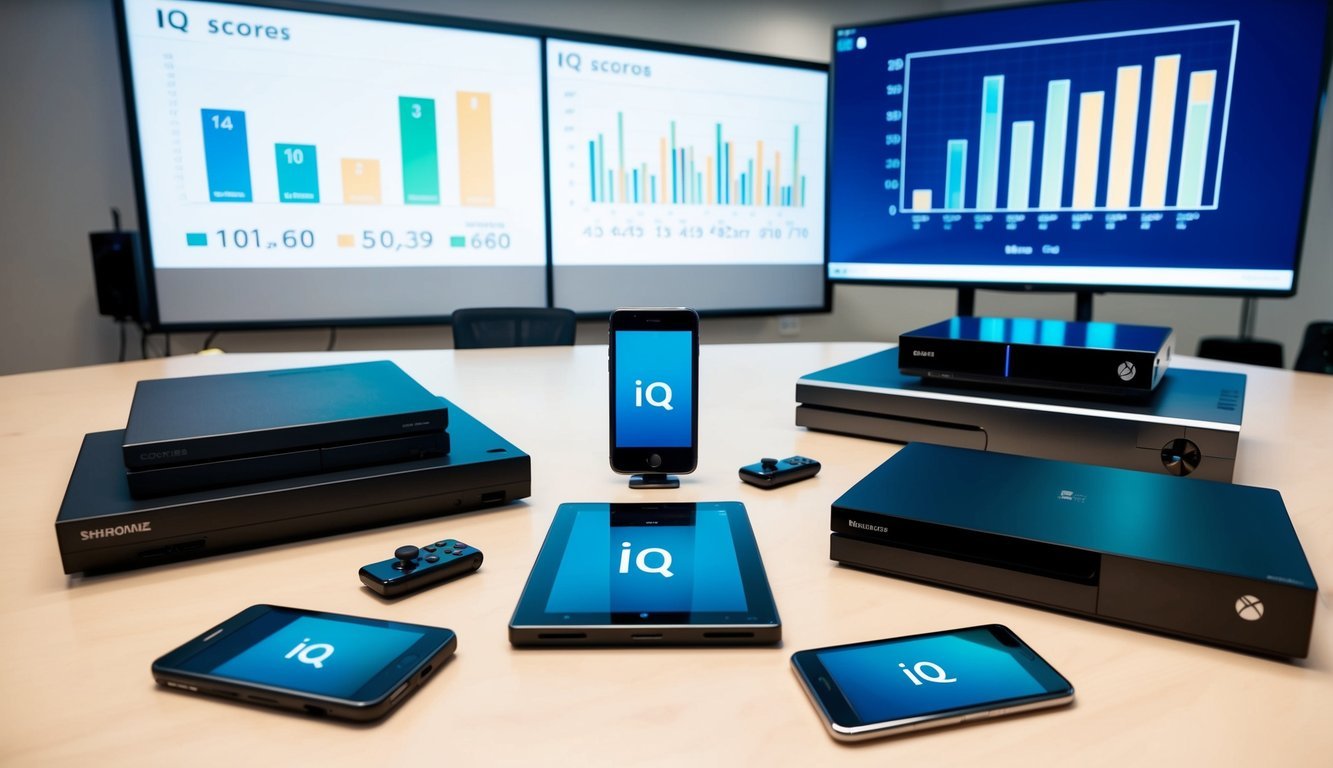
Different gaming platforms can influence the cognitive abilities of users. Examining how Android and iPhone users perform can reveal interesting trends in IQ scores among gamers. The choice of software and hardware also plays a role in shaping player experiences and cognitive skills.
Studies suggest that women gamers tend to perform better in IQ tests compared to their male counterparts across various platforms. This trend may show differently between Android and iPhone users.
Android devices often support a broader range of games, including those that challenge cognitive functions more heavily. These games can enhance problem-solving skills and creativity.
In contrast, iPhone users may benefit from a more optimized app ecosystem. Some studies found that games on the iPhone focus on user experience but might not stretch cognitive skills as much as some Android games do.
Both software and hardware impact how gamers interact with digital media. For Android users, the availability of diverse apps encourages exploration and innovation in gaming. Such diversity can engage players in various ways, potentially enhancing their cognitive skills.
On the other hand, iPhone devices often feature advanced graphics and smoother gameplay. This can create more immersive experiences, helping users develop quick decision-making abilities.
Innovative features in both platforms contribute differently to IQ performance. The cognitive skills developed through gaming can vary, depending on whether one plays on Android or iPhone.
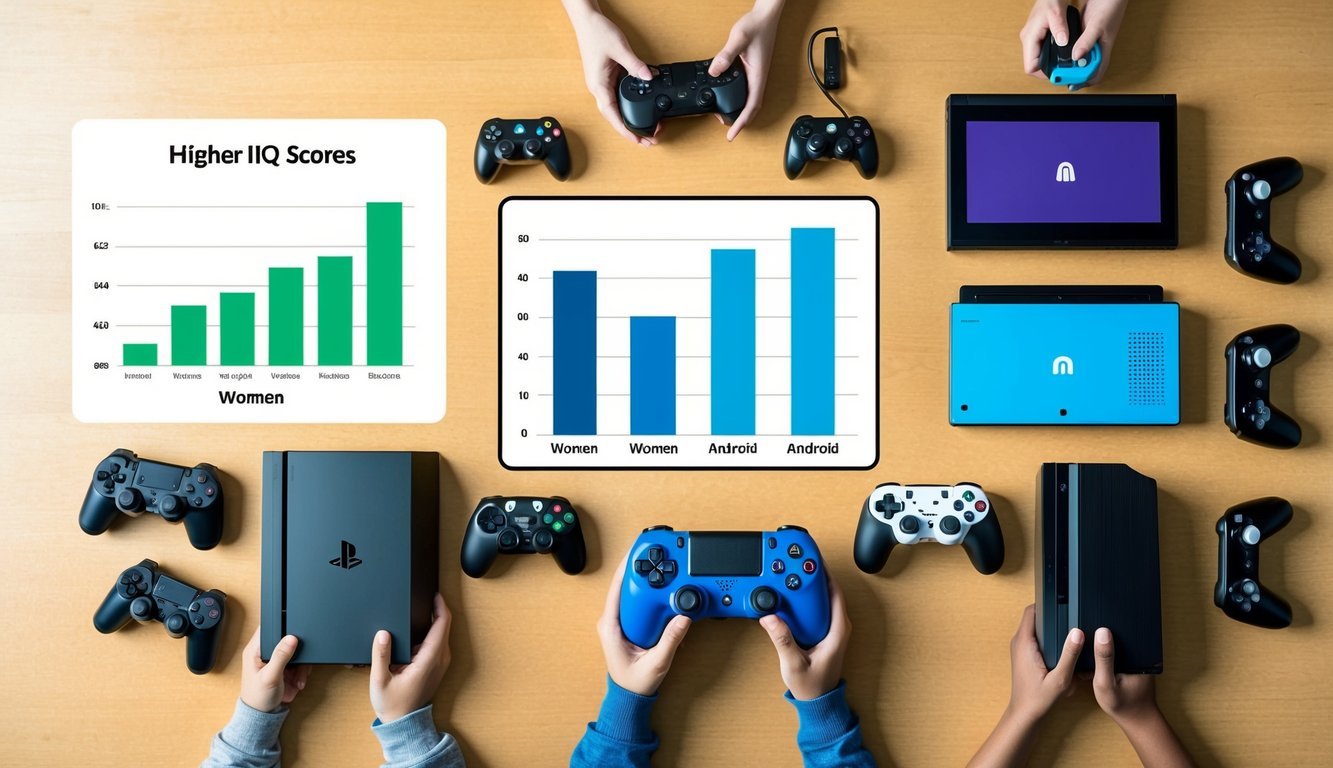
The socio-cultural context of gaming plays a vital role in understanding how gaming habits form and evolve. This context includes the impact of media culture and social media trends on gamers today.
Media culture has a significant influence on gaming preferences. The rise of streaming platforms and gaming channels has changed how gamers engage with their favorite titles. Platforms like Twitch and YouTube allow players to showcase their skills, while others watch and learn.
This shared media space creates a community where trends can spread rapidly. For example, popular games can skyrocket in player numbers overnight due to viral content. Events like E3 and gaming conventions also fuel excitement and media coverage, impacting what games become popular.
Social media plays a crucial role in shaping gaming culture. Platforms like Twitter, Instagram, and TikTok provide gamers with a way to connect and share their experiences. This sharing can influence opinions about games and gaming communities.
Gamers frequently post clips, reviews, and memes about their favorite games. This content can reach a wide audience, making some games more appealing. Additionally, social media can foster support networks, where gamers share tips, tricks, and encouragement.
This digital environment encourages discussions about inclusivity and representation in gaming, further shaping the cultural context in which games are experienced.

Developing visual and cognitive skills is crucial for both gamers and non-gamers. Engaging with imagery and interactive experiences can enhance a person’s ability to understand and interpret visual information. This section explores how gaming influences these skills.
Imagery plays a vital role in enhancing cognitive abilities. Games often use stunning visuals to immerse players in various scenarios. This involvement helps improve their ability to process visual stimuli quickly.
Photography is another medium that sharpens visual skills. Players frequently capture moments in games, encouraging them to think creatively about framing and composition. Engaging with both imagery and photography fosters a deeper understanding of visual elements, which can translate into real-world applications.
Visual literacy is the ability to interpret and make meaning from information presented in the form of images. Games that require players to solve puzzles or navigate complex environments promote this skill. Players learn to analyze visuals, track movement, and identify patterns effectively.
Additionally, creating game content encourages creativity. Gamers often design characters or environments, which involves making choices about visual aesthetics. This practice not only boosts their imagination but also enhances their overall visual literacy. By refining these skills, players can better understand visual information in various contexts.
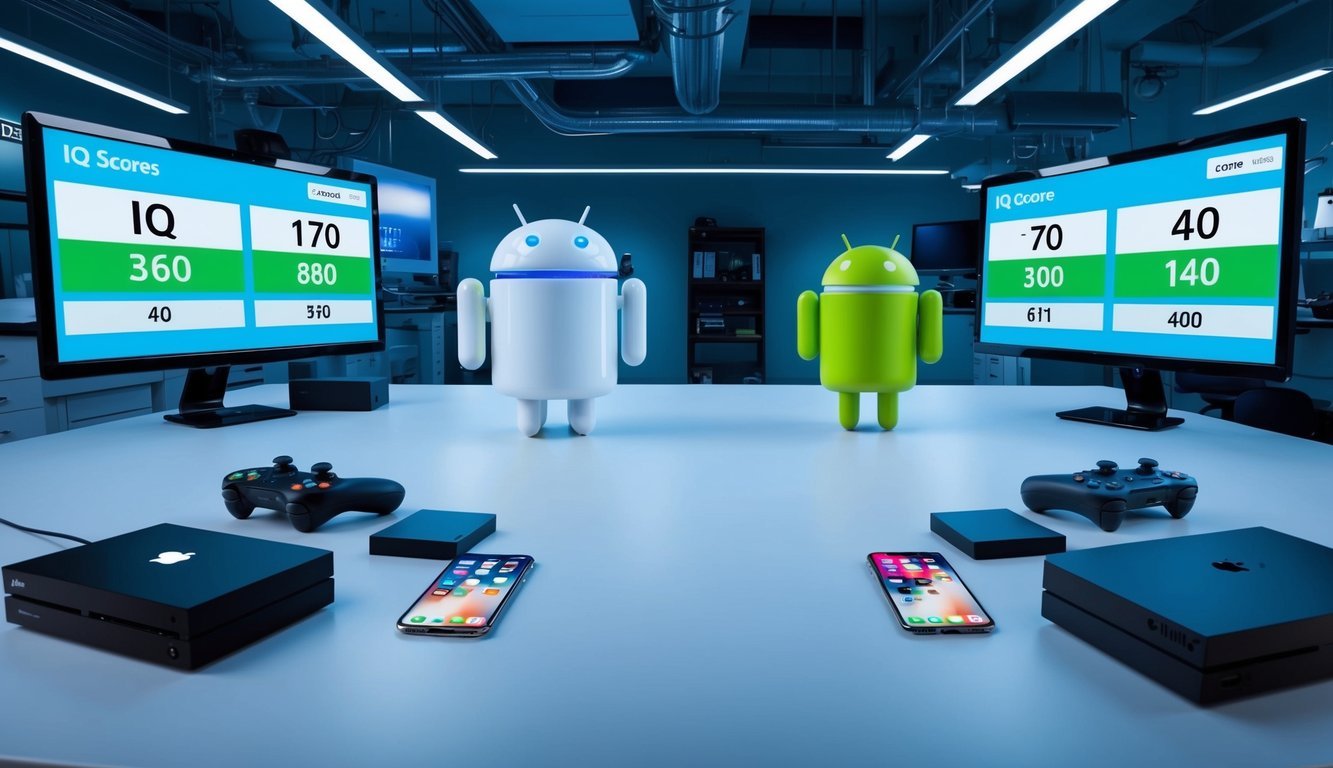
The recent findings on IQ scores among video gamers can influence artificial intelligence research in several ways. For instance, understanding cognitive differences between genders may help shape AI systems that better cater to diverse user needs.
DeepMind and other organizations can leverage this data to improve human-computer interaction. By analyzing how different groups perform in gaming, AI can be designed to adapt to various cognitive skills and preferences.
Additionally, it highlights the importance of human identity in AI development. Personalized AI experiences can foster a deeper connection between technology and users. This approach promotes inclusivity by recognizing diverse intelligence profiles.
The gaming landscape also reveals how experience affects skills. AI can be trained to emulate or enhance these experiences, making games more engaging and accessible for everyone.
Moreover, as video games continue to evolve, so will the potential for AI to learn from players. Observing decision-making patterns can lead to advancements in understanding human behavior and improving AI responses.
Lastly, this research encourages the ethical design of AI. Identifying varied user capabilities ensures that AI tools support all users effectively, minimizing bias. This aspect is crucial for fostering trust in AI systems.
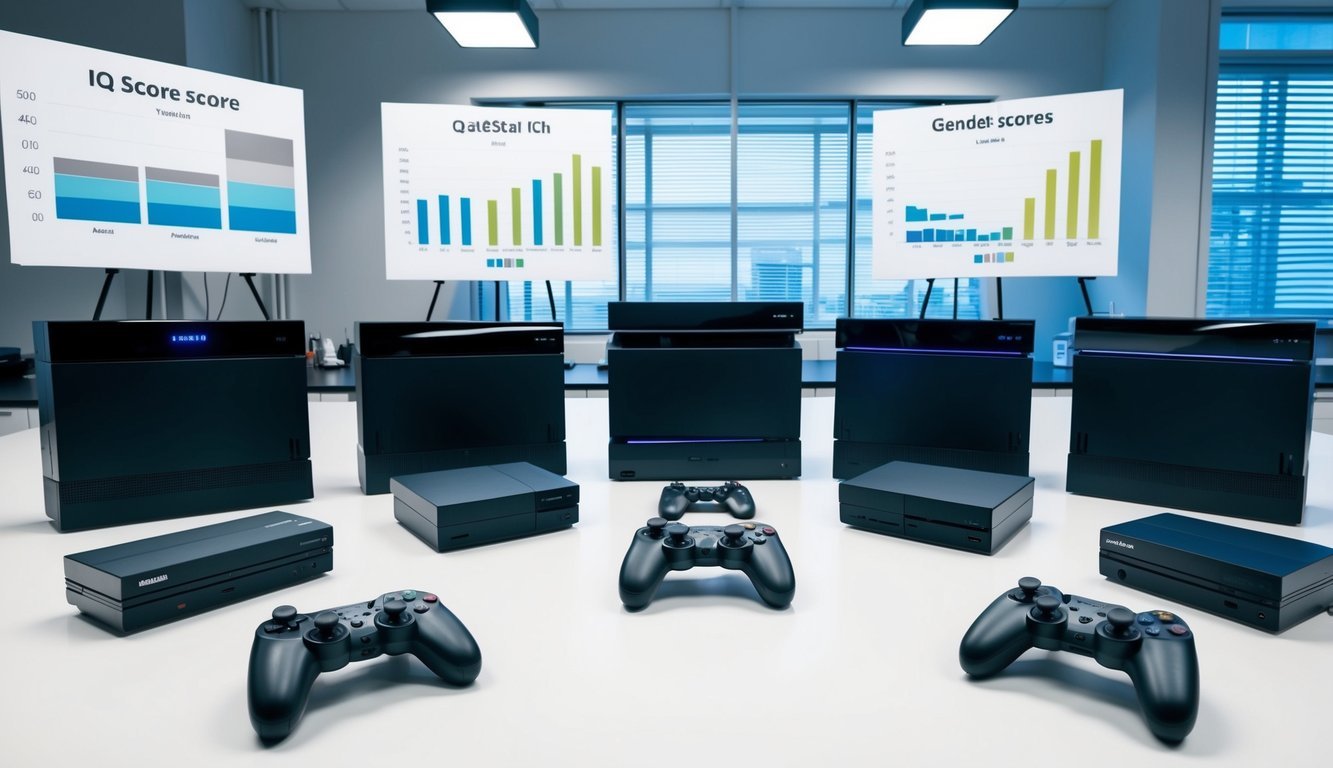
This section addresses common queries regarding the relationship between video gaming and IQ scores, including insights on professional gamers and differences between platforms. Each question digs deeper into how gaming impacts cognitive abilities and player demographics.
The average IQ of a professional gamer can range widely. Some studies suggest it may be around 110 to 130, which is above the national average. However, this can vary based on factors such as skill level, experience, and the types of games played.
Research indicates there may be a link between game genres and IQ levels. For instance, strategy games may attract players with higher IQs due to the critical thinking required. Conversely, casual games might engage a broader demographic, which can include varying IQ levels.
Current studies do not conclusively show a significant difference in IQ scores between iPhone and Android users. While some data suggests varied performance in gaming tasks, many factors influence IQ, and device choice alone is not a determining factor.
Some video games, like puzzle games and strategy games, are often linked to higher IQ scores. Titles that challenge cognitive skills, such as “Portal” or “Civilization,” are noted for enhancing problem-solving abilities, which may reflect in IQ assessments.
Regular gaming may influence cognitive skills but not necessarily lead to significant changes in IQ. Studies have suggested that frequent engagement can improve problem-solving skills, memory, and spatial awareness. However, long-term IQ effects remain uncertain.
Certain games may appeal more to casual gamers or those who prefer simpler mechanics. These games often do not require complex strategies, which could indicate a lower average IQ amongst their player base. However, it’s important to recognize that enjoyment of a game does not equate to intelligence.